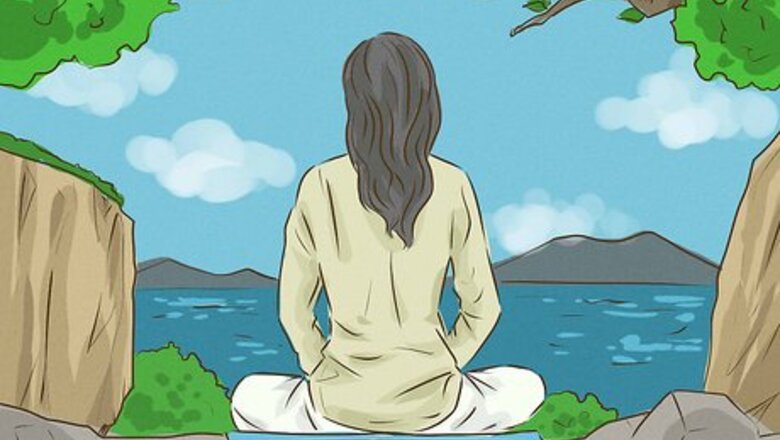
views
Resting without Sleeping
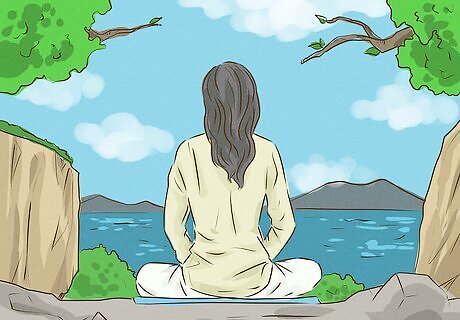
Engage in meditation. Meditation is defined as the art of doing nothing and the techniques that provide you with rest are deeper than your deepest sleep. When you get overworked or severely tired and have no time to sleep, take time to sit and meditate. Meditation will give you a deep rest from concentration, contemplation, and all of the sensory activities such as seeing, listening, smelling, and tasting. Meditation is a calming effect on the mind and provides it with deep rest. Try to meditate for at least twenty minutes a day for optimal performance.
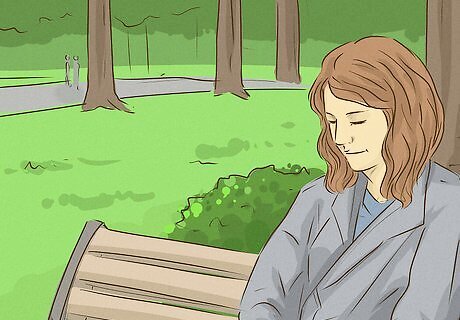
Zone out. With modern technology it seems we never have time to give our brain a short break. Zoning out, or mind-wandering, is a good exercise to take a short rest without sleeping during a busy day. When you need a break, walk over to a window and mindlessly watch the cars or people pass by for a few minutes until your mind doesn't think about anything. Find a quiet place and sit down. Close your eyes and just listen to the background noises. Instead of taking a smoke or coffee break for fifteen minutes, try going outside, closing your eyes, and just let the sun shine all over your body while you clear your mind.
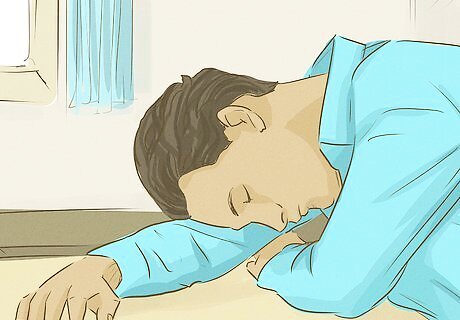
Plan on resting intentionally. Intentional resting can take place anywhere and at anytime. If you are really tired and need to take a short break from a busy day intentional resting can restore your energy by making a statement such as “I am resting my body because I am tired.” This method works for many people because you consciously choose to rest without trying to resist it. This exercise takes your stressed state of being to stillness and ultimately restores and enlivens you. Many people claim to feel energized after resting. Rest does matter and surrendering the need to reenergize, even without sleeping, can provide a much needed break during a busy day.
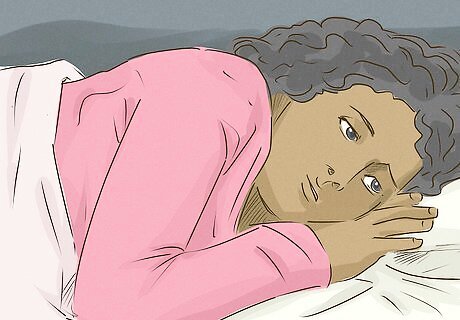
Stay passively awake. This is also called paradoxical intention. The purpose is to reduce worry and anxiety for people with sleeping disorders to not fall asleep in a bed. Instead, you have to try to stay awake rather than expecting to fall asleep (hence paradoxical intention). Since obsessive thoughts tend to increase when you try to suppress them, it naturally becomes more difficult to sleep when you try so hard to do it. Therefore, by taking the opposite approach of increasing the problem will, in turn, reduce it.
Getting a Quick Rest
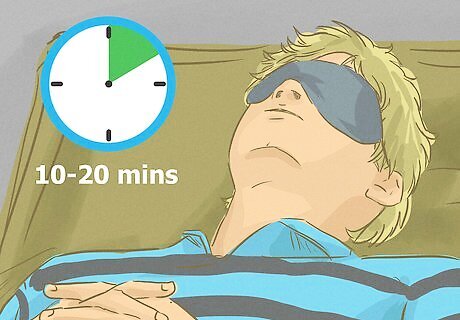
Take a cat nap. A cat nap is a short power nap of about ten or twenty minutes that will refresh and rejuvenate you. Find a quiet place that is comfortable and away from distractions. If you can, make the space dark, as if you were going to bed and try to lie down. Don't oversleep or the exact opposite effect will happen – you will become more tired.
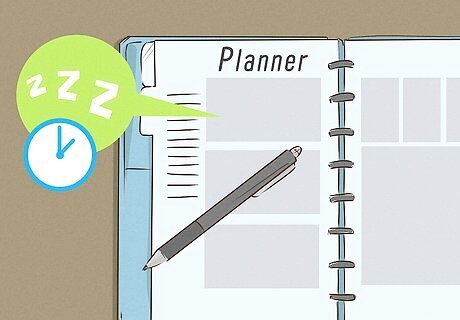
Plan to nap. Or, what the National Sleep Foundation (NSF) refers to as “planned napping.” Basically, this is where you schedule a time of the day to take a nap before you are tired. It is good to prepare for this type of nap if you know you will be making a long road trip or working late into the night. Similar to cat napping, try to limit planned napping to twenty or thirty minutes max. Bring a clock or watch with you so that you can set your alarm accordingly.
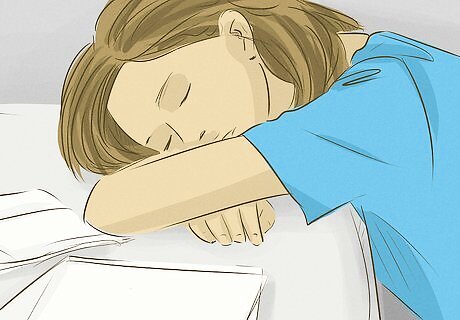
Take an emergency nap. When you suddenly become so tired that you cannot function properly and could potentially cause harm to yourself or others, take an emergency nap. These types of naps are most common for people working double shifts or traveling great distances because of their job. This type of nap is used during times of fatigue or when using dangerous machinery and are taken out of necessity for safety reasons. If you have to resort to emergency napping frequently, it can become dangerous to your life and health.
Staying Awake over Long Periods
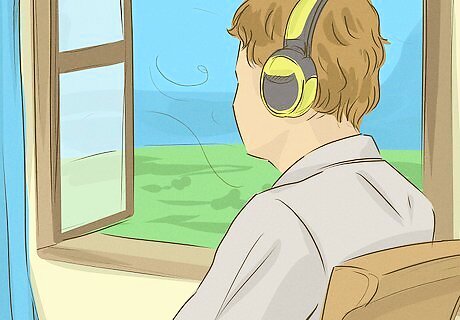
Make yourself uncomfortable. Sit in a hard chair, open the window in winter, blast loud music, slap yourself in the face, or whatever it takes to stay awake. Why would you do this? If you have an important meeting that you are preparing for or driving to a far away destination, you might have to stay awake for a long period of time. Go into the bathroom, run water until it is ice cold, and then splash it all over face. Turn up the intensity of the light in the room to reduce sleepiness and increase alertness. Pinch the end of your nose until your nostrils are completely closed and you feel discomfort.
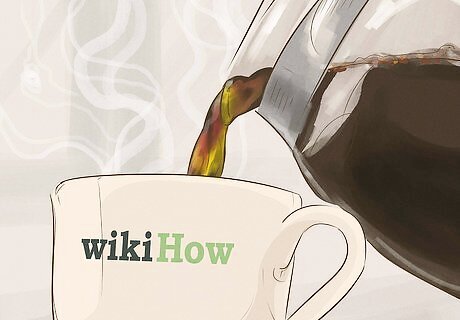
Consume caffeine. Caffeine has a dramatic impact on sleepiness. A single cup of coffee, for example, can give you a boost of alertness. About 100 to 200mg of caffeine will do the trick. Be strategic with your caffeine. Although helping you to stay awake, more than 500 mg of caffeine a day can cause headaches, restlessness, or anxiety. If you have to stay awake for a long period of time, drink a 5-Hour Energy, which has lots of useful B complex vitamins. Red Bull and Monster, however, rely mostly on caffeine and sugar, and are not recommended.
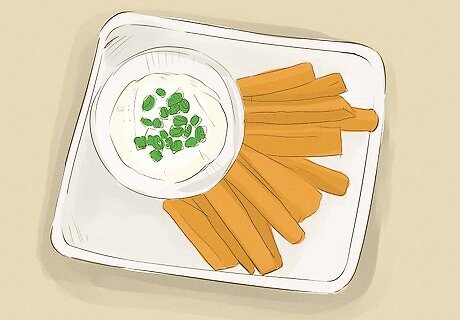
Eat a healthy snack. Be careful of eating too many sugary snacks. Although sugar will give you an immediate boost of energy it will quickly die down and give you a sugar low overall. Instead, try eating a healthier snack that will help you stay awake. Try spreading peanut butter on a whole wheat cracker or on celery sticks. Sprinkle a handful of nuts or fresh fruit on top of your yogurt. Dip your baby carrots into a low-fat cream cheese.
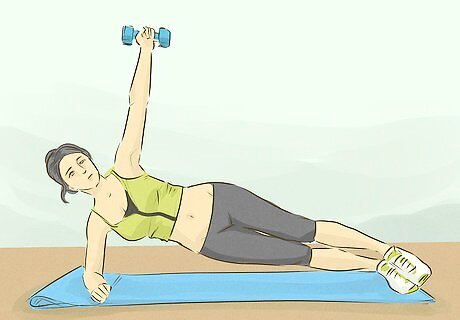
Exercise to increase energy. Recent studies show that low intensity exercises significantly reduce daytime fatigue compared to medication or and other methods. Try to get at least thirty minutes of exercise a day. It will not only improve your daytime performance, but also it will help you sleep better at night. Make sure to refill your energy levels after exercise by eating a meal that contains both protein and carbohydrates. Try not to exercise too late at night. Otherwise, your body will be too active to enjoy a good night sleep. Low intensity exercises include light walking, stretching, yoga, and swimming. Also, consider household chores such as vacuuming, gardening, or washing your car as potential to get your light workout in every day.
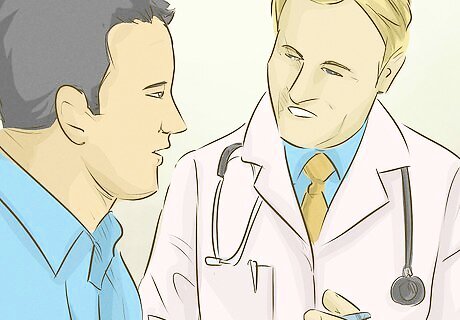
Visit a doctor. If all else fails then visit your doctor. If you find it impossible to either get adequate sleep or don't have enough energy throughout the day, you might have a more serious condition that needs a professional diagnosis. When sleepiness begins to disrupt your personal and professional life go see a doctor. Insomnia, the inability to sleep, and narcolepsy, excessive daytime sleeping, are two of the more recognizable sleeping disorders, but cataplexy, sleep paralysis, and hallucinations can all occur if you are sleep deprived. Narcolepsy starts between the ages of ten and 25 and is believed to be caused by a chemical imbalance. There are no known cures so it is treated with medication. Insomnia is a disorder caused by stress, anxiety, depression, medical conditions, and age. Reducing these symptoms will help as will changing your sleeping patterns. If neither works, a doctor will recommend therapy or medication to treat the condition.


















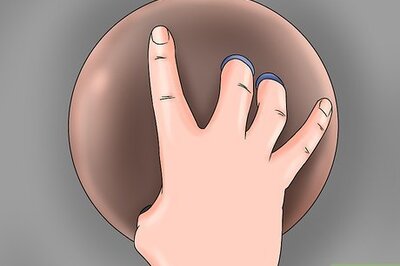

Comments
0 comment